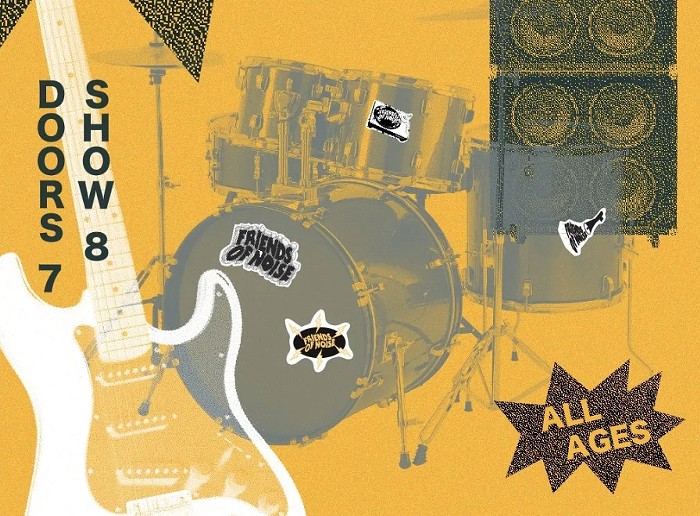THE FIRST TIME I heard Andrew Bird was almost exactly eight years ago. It was very early in the morning and the sun was still rising. I was driving to work and decided to play a CD burned by my friend, a selection of his favorite songs. The first was Bird's "Yawny at the Apocalypse." To say it was a spiritual experience wouldn't be quite right—it was an aligning experience. The perfectly crescendoing piece of music filtered through the surrounding trees and palpably brightened the early morning. The timing was coincidental, but the moment was so beautiful I began to cry.
Bird's music is whimsical but never cheesy. Smooth, swooping melodies perfectly balance sharpness with softness. His songs are characterized by technically tight riffs, piercing whistles, and wordy, cerebral lyrics. We talked to Bird about the spirituality of performance, internal songwriting, and his new album, Are You Serious.
MERCURY: Many people have characterized your music as sounding like it's from some otherworldly realm. When you're songwriting do you approach the music as coming from this separate world?
ANDREW BIRD: I can really keep myself pretty entertained in my interior world. For instance, when I've got some time to kill or I'm on a long drive, I'll start playing a melody in my head that's been circulating, and I can just work for five, six hours straight on it without picking up an instrument or putting pen to paper, just sort of experimenting. My internal playback system is pretty loud, and taking that to the live performance—which is probably the most sacred thing I do—that part of the whole experience feels like a parallel universe. Being on stage, performing these songs, feeling connected, hopefully. That should be the ultimate realization of that internal world—the externalization of projecting it out of your body. That's the most important ritual.
When you say that you're working on these melodies internally, are you hearing a fully orchestrated piece or are you hearing one linear melody that you start to build around?
I think I focus more on one thing at a time; various things get under my skin. Could also be a rhythmic thing that gets under my skin, could be a combination of syllables and vowels and tones. A song like "Roma Fade" has so many counterpoints, each one could be a hook. The bass line in particular, that to me was one of the biggest hooks. And the melody that sits on top of it—I tried to write the lyrics to fit that melody, but they didn't. I had to make some compromises between sounds. It shadows the melody to some degree. If it's all too scripted in your head, it's a recipe for frustration. You gotta be a little bit flexible.
You brought more technically proficient players into your band for this record, starting with Tony Berg and Blake Mills. You've described them as less scrappy and more musically fluent. What prompted that decision, and how do you think it affected the record?
[For] the last couple of records I had a very anti-production production. To me records are starting to sound like decisions. I can hear the decisions being made. I can see the Pro Tools file in my head, and it's not pretty. There's still live spirit on this record, but I wanted to say: What if Andrew Bird made an expensive record? Which is kind of what this was; everything was pretty top shelf. I'd never worked with a producer before. I brought in a handful of the best musicians I could get my hands on, and I was more open to external advice. I was looking for concrete advice on these songs. That was a deliberate thing.
You began your solo career living on your farm and spent about four years touring or working on that farm. Now you're in a big city, in a large community, and you're married with a child. How do you think that's changed your writing habits?
Well, geography has some effect but it's arguable. When it's kind of an internal world I've always had, that remains a refuge of sorts. But I've always cut my time between some sort of urban canopy and the wide-open spaces. I think certainly seeing great distances and calibrating your perception of the world—if you can see a storm coming through a valley and then passing over your head and then moving on, it can have an effect on your whole temporal sense of things. Whereas if you're in a suburban concrete environment where you're looking at your phone all day, it's going to affect your brain. But as far as having a family, having a house for the first time... I was really living out of a suitcase for 20 years and would arbitrarily call places home. That's having a huge effect on how I write.
The majority of your new record was written in a concentrated time when you were transitioning from New York to LA—is that typical of your creative process, to write the bulk of an album in a short period of time?
That's really never happened before. I kind of reimagined how I made music [on the farm], but I've never had that kind of outpouring of ideas in such a concentrated period of time. That's not the case with everything. Some songs took a decade to write. Maybe 60 percent of the record was written in those five days. It's a bit of cliché, like this guy wrote a novel in his attic in a week. I'd never experienced that. I had to kind of repress some things to hold it together for a few years and it all kind of came out in a safe place.


















